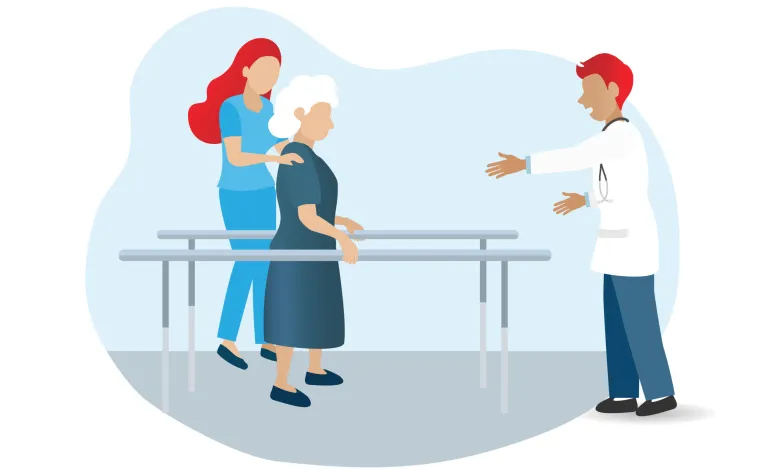Neurorehabilitation is the treatment of patients with neurological diseases, disorders, or injuries to improve their ability to function independently in society. Neurorehabilitation focuses on restoring movement and sensation, as well as improving communication skills and other aspects of health. Rehabilitation can be performed in a hospital or rehabilitation center, at home, or in another place of your choice.
Neurorehabilitation aims to help you gain independence again after an illness or injury that has prevented you from doing things you once enjoyed. Through this process, your brain will learn to make new connections and adapt to new situations.
Below are the benefits of neurorehabilitation;
Customized care
In neuro rehabilitation Galveston, you receive individualized therapy tailored to your unique needs. This means you are treated in a comfortable and safe environment. Your therapist will help you reach your goals through physical, occupational, speech, and other services.
Effective treatment
Neurorehabilitation aims to return you to full function as quickly as possible following a stroke or TBI. Your doctor may refer you to neurorehabilitation if they believe this is necessary for recovery from your condition or if there are lasting effects from a stroke or TBI that impact your ability to live independently.
Improved quality of life
Neurorehabilitation can help people with brain injuries improve their quality of life by giving them the tools they need to become more independent and functional. The treatments can help patients regain basic functions such as eating and sleeping, which may be compromised following an injury or stroke. If these therapies are successful, they will lower their risk of further complications or poor outcomes.
Reduced hospital stays
Neurorehabilitation patients may be able to leave the hospital sooner than those who don’t receive treatment for their injuries or strokes due to improved mobility, balance, and coordination skills.
Improved motor skills
Neurorehabilitation helps individuals regain and improve their motor skills, including balance, coordination, strength, and mobility. This is particularly beneficial for patients with conditions such as stroke, traumatic brain injury, spinal cord injury, or multiple sclerosis.
Enhanced cognitive abilities
Neurological conditions can affect cognitive functions such as attention, memory, problem-solving, and language skills. Neurorehabilitation programs employ various techniques and exercises to improve these cognitive abilities and promote functional independence.
Pain management
Neurorehabilitation can help individuals with chronic pain resulting from neurological conditions. Techniques such as physical therapy, occupational therapy, and psychological interventions are employed to alleviate pain and improve the patient’s overall well-being.
Restored independence
Neurorehabilitation aims to restore independence and functional abilities, enabling individuals to perform daily activities and participate in society. This includes activities like self-care, mobility, communication, and community engagement.
Reduce symptoms
Neurorehabilitation can help reduce symptoms that are caused by brain injury or stroke. For example, it may help improve speech or motor skills after a stroke. This can make life more manageable for you and your family members.
Emotional and psychological well-being
Neurological conditions can significantly impact an individual’s emotional and psychological well-being. Neurorehabilitation incorporates psychological support, counseling, and strategies to manage emotional challenges, reduce anxiety and depression, and improve overall mental health.
Adaptation and coping strategies
Neurorehabilitation teaches patients adaptive techniques and strategies to overcome the challenges posed by their condition. This includes learning alternative ways of performing tasks, using assistive devices, and developing coping mechanisms to deal with functional limitations.
Social integration
Neurorehabilitation helps individuals reintegrate into society and improve their social interactions. Rehabilitation programs often include group therapy, peer support, and community reintegration activities to foster social connections and reduce social isolation.
Long-term management
Neurorehabilitation provides patients with the tools and resources necessary for the long-term management of their condition. This may involve education about their condition, self-care techniques, exercise programs, and guidance on maintaining a healthy lifestyle.
It’s crucial to note that the benefits of neurorehabilitation can vary depending on the individual’s condition, the severity of the injury or illness, and personal goals. Neurorehabilitation is a multidisciplinary approach that involves collaboration between healthcare professionals such as physicians, physiotherapists, occupational therapists, speech and language therapists, psychologists, and social workers to provide comprehensive care and maximize the benefits for each patient.
Key Takeaway
Neurorehabilitation is a specialized branch of medicine that focuses on rehabilitating and restoring individuals with neurological conditions or injuries. Neurorehabilitation aims to enhance patients’ functioning and quality of life by addressing their physical, cognitive, emotional, and social needs.

